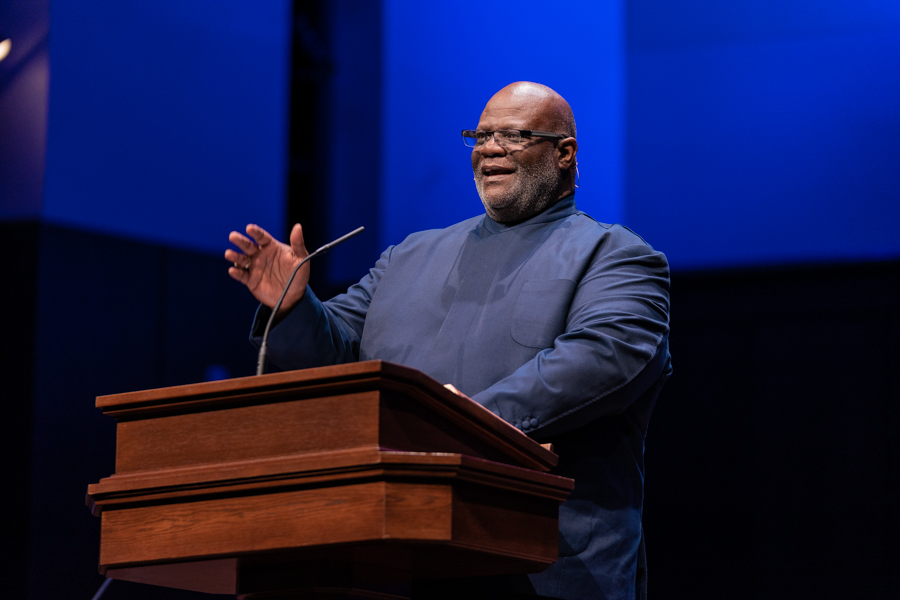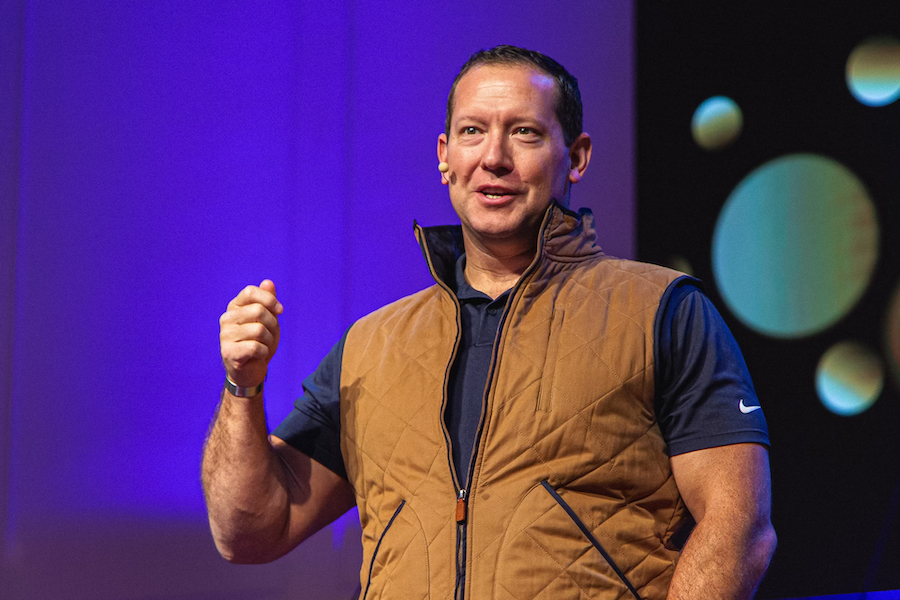A unified church experiences God’s power, McKissic shared in chapel message


Disunity among Christians poses a major threat to global evangelism, Dwight McKissic, founder and senior pastor of Cornerstone Baptist Church in Arlington, Texas, warned in his April 5 chapel message at Southwestern Baptist Theological Seminary and Texas Baptist College.
In his introduction of McKissic, Adam W. Greenway, president of Southwestern Seminary and TBC, noted his appreciation for McKissic’s “heart for our seminary, his heart for our Lord, his heart for his church, and his heart for the kingdom.”
Directing the attention of the assembly to Romans 16:13, in which Paul expresses his close relationship with Rufus, a Cyrenean, and his mother whom Paul described as “a mother to me, too,” McKissic said, “we are reminded that the early church prioritized keeping Christ exalted above culture. Consequently, the church at Rome experienced the confluence of cultures in one congregation centered on the cross of Calvary.”
McKissic advised that “today’s church, too often on all sides, places culture above or equal with Christ rather than experiencing a confluence of various cultures in our churches.” He added the church must be unified to “convince the world” of Jesus’ incarnation.
Emphasizing the cultural “chasm” within the body of Christ, McKissic cautioned that a church that is not unified may hinder the world from receiving and hearing the Gospel.
“We must learn to work together in kingdom unity,” McKissic said, noting Paul’s relationship with Rufus and Rufus’ mother.
McKissick explained, “This one verse may reflect the best example of unity in the church than even the other 26 verses” of the chapter. He added that class, gender, and ethnic diversity are represented in the passage and observed that Rufus and his mother were Cyreneans from North Africa who most likely spent substantial time with Paul as he taught in Antioch.
Referencing verses 1 and 2 of the chapter, McKissic observed that the church of Antioch was planted by men from Europe, Africa, and Asia. He said, “If a church starts out in her DNA being multicultural and interracial, she is likely to continue to grow as a multicultural, interracial congregation.”
McKissic explained that verse 13 emphasizes Paul’s recognition of Rufus’ mother who most likely offered him hospitality, nurture, care, and spiritual mentorship. He observed, “I believe the church of the Lord Jesus Christ today would be a much better place and more attractive to the world if we reflect the kind of unity and diversity we find in this Roman text.”
McKissick also highlighted the Asian influence of early Christians in verse 5, noting that Paul specifically named Epenetus, the first convert to Christ in Asia. “It was important for Paul to let believers know that the church should look like the kingdom of God. We see Asians and Africans all in this Roman congregation,” he said.
“The Bible is cross-cultural,” McKissick said, noting Acts 8-10 in which Paul lists people of various cultures and ethnicities who converted to Christ. “I believe in the 21st century God wants to break the color barrier and he wants all of his people in one place at one time, even as it was in the day of Pentecost.”
Concluding his message, McKissick encouraged, “God comes in power when there is visual unity, verbal unity, and vital unity in one place. God can act with breathtaking instant power when His people are unified, as was on the day of Pentecost.”
“There is an audible and visual unity and diversity when God’s people are one. When the church comes into unity, she will experience God’s power,” McKissick asserted.
McKissic is a 2020 Master of Theological Studies graduate of Southwestern Seminary.
McKissic’s entire message can be viewed here.
Chapel is held every Tuesday and Thursday morning at 10 a.m. (CT) in MacGorman Chapel on the campus of Southwestern Seminary. Chapel may be viewed live at swbts.edu/live.



